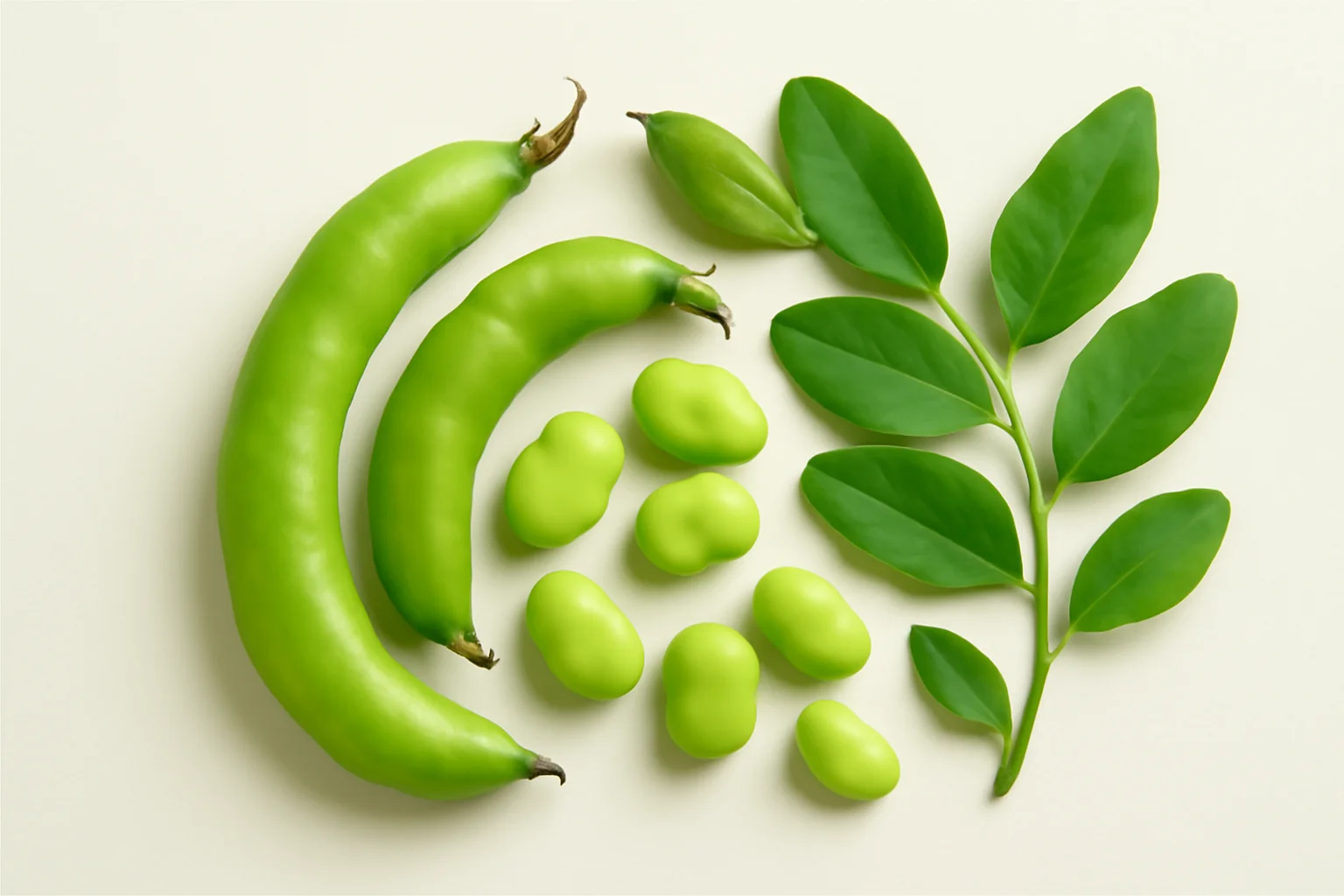
The Beneficial Effects and Uses of Horse Beans
The broad bean, also known as fava bean, is an incredibly versatile plant that has gained increasing popularity in health-conscious diets in recent years. The broad bean is not only delicious and nutritious but also has numerous beneficial effects that can contribute to maintaining everyday health. It is rich in nutrients such as proteins, vitamins, and minerals, making it an ideal choice for vegetarians and vegans.
Thanks to the various forms and preparation methods of broad beans, they can be incorporated into diets in many ways. In addition to their use in dishes, broad beans can be an excellent ingredient for making various healthy snacks and salads. Due to their high fiber content, broad beans positively impact digestion and can help stabilize blood sugar levels and prevent cardiovascular problems.
Although the beneficial effects of broad beans cover a wide spectrum, it is important to be aware of the correct usage methods and any potential contraindications. In this article, we will take a closer look at the advantages, nutrient content, and usage possibilities of broad beans to provide useful information about this special plant.
The Nutritional Content of Broad Beans
The nutritional content of broad beans is extremely rich, contributing to the plant’s popularity. They are primarily high in protein, which is particularly important for those following vegetarian and vegan diets. Broad beans contain about 25% protein, which is a significant amount among plant sources. Additionally, broad beans provide the essential amino acids necessary for the body.
Their fiber content is also noteworthy, as there are approximately 8-9 grams of fiber in 100 grams. Fibers play an important role in digestion, helping bowel movements and contributing to the feeling of fullness. Therefore, consuming broad beans can help prevent overweight and support diets.
Among vitamins, broad beans stand out for their high content of B vitamins, such as B1, B2, B3, B5, B6, and folic acid. These vitamins are important for metabolic processes and contribute to cellular health. Furthermore, broad beans are rich in minerals such as iron, magnesium, phosphorus, and zinc, all of which contribute to the proper functioning of the body.
Due to their low glycemic index, broad beans can also be an ideal choice for diabetics, as they can help stabilize blood sugar levels. With their low calorie content, broad beans provide an excellent alternative to traditional carbohydrate sources, making them suitable for a varied and healthy diet.
The Beneficial Effects of Broad Beans
The beneficial effects of broad beans cover a wide spectrum and can play a role in preventing various health issues. One of their most important advantages is the protection of cardiovascular health. The high fiber content of broad beans helps lower cholesterol levels, which can reduce the risk of heart disease. The presence of antioxidants can also aid in maintaining heart health.
Additionally, consuming broad beans can help stabilize blood sugar levels, which is particularly important for diabetics. Due to their low glycemic index, broad beans gradually release carbohydrates, thus avoiding sudden spikes in blood sugar levels. The fiber also contributes to slower digestion, which can reduce feelings of hunger.
Moreover, the consumption of broad beans can support the health of the digestive system. The fibers promote bowel movements and contribute to the health of gut flora. The prebiotics found in broad beans nourish gut bacteria, which can help maintain the balance of gut flora.
Due to their nutrient content, broad beans can also contribute to strengthening the immune system. The vitamins and minerals they contain support the body’s defenses, making regular consumption of broad beans beneficial for disease prevention.
Usage Possibilities of Broad Beans
The usage possibilities of broad beans are incredibly diverse, making them easy to incorporate into daily diets. One of the most common forms is cooking broad beans, which can serve as a delicious and nutritious side dish. When cooked, broad beans have a pleasant taste and texture, making them suitable for use in salads and main dishes alike.
Broad beans can be used to prepare various dishes, such as broad bean puree, which can be a great alternative to traditional mashed potatoes. Making broad bean puree is simple: cooked broad beans are mashed and can be flavored with spices, olive oil, or garlic.
Broad beans can also be used in soups, where they enhance the flavor and nutritional content of the dish. A vegetable soup made with broad beans becomes more nourishing, and the broad beans contribute to the soup’s thickness.
Dried broad beans are also popular and can be used in several dishes, such as salads, risottos, or as a side dish alongside meat dishes. Dried broad beans retain their nutrient content, allowing for long-term storage.
We can also make tasty snacks from them, such as broad bean chips, which are a healthy alternative to traditional chips. To make broad bean chips, broad beans are baked until crispy, resulting in a nutritious snack.
The possibilities for using broad beans are virtually endless, allowing everyone to find a format that suits their taste and can incorporate this beneficial plant into their daily meals.
**Warning:** This article does not constitute medical advice. In case of health issues, everyone should follow their doctor’s advice.

